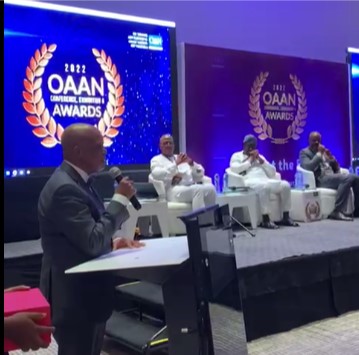The global economy, especially those of many emerging markets have slowed due to many months of slow growth, and the recovery rate is not as fast as politicians and stakeholders want. As economies begin to recover around the world, marketers face new challenges in relating to their consumers. A new post-recession era has dawned. Consumers have revised their priorities, and advertising needs to speak differently to these consumers if brands are to survive and thrive in the years to come.
Nigerian consumers have also been impacted by the reverberating effect of the global slow down. The Nigerian economy has grown at an average of 6.8 per cent between 2005 and 2015 and is currently growing at about 2.2 percent, but it could decline further – according to the National Bureau of Statistics in Abuja. However occasional revenue spikes may be expected as US-Iran are facing off due to recent US drone strike of a top Iranian general.
The global economic drag is just one of many events that have undermined people’s sense of security in the past decade. Terrorism, political instability, global warming, and the degradation of the environment were all looming large as concerns even before financial markets and the government organisations meant to oversee them began to fail. As a result, a mood of mistrust and anxiety developed among many people around the world, and that mood sparked a reexamination of priorities and values. In Nigeria, the insurgency in the North East of the country triggered apprehension and concern despite government claim of victory of Boko Haram we are still here grappling with our reality. Many people stopped finding joy in excessive consumption and heedless spending, and a new trend, which we call “mindful consumption,” has emerged. Mindful consumption is demonstrated by consumers buying fewer products and fewer brands, and being more considered in their choices.
Though it is most apparent in mature markets, we expect mindful consumption to eventually affect all global markets, even the emerging ones, because it represents more than just a response to the present crisis. It is a response to the idea that happiness can be purchased.
Various studies by Kantar in Nigeria show that we have mindful consumers a plenty. In fact:
- They make up 23% of Nigerian population
- They are well educated – 92 percent with post-secondary education
- Average number of children in their family is two
- Average Monthly income N75,000-100,000 or USD 6,000 – 7000 per annum
- Strong saving culture, low borrowing
- Very optimistic about life and they generally ‘shine’ their eyes and always look before they leap
- They consume traditional media and rely on the internet to stay connected
- They shop in the open air, convenience stores and supermarkets.
- Among these mindful consumers are the Alpha generation, highly tech oriented and very strategic in the way they spend because of their immense access to information and connectivity
The brand manager’s new challenge is how to respond to these new consumers in the house. My simple suggestion is occasional marketing research to ensure we are in tune with their expectation so that we are not left behind by these new and highly progressive people. Do not forget, they do not owe us nothing we must make them happy so grow our critical numbers.







Comment
No comments found.